An inaugural grant from the newly established Endangered Landscapes Programme will enable Rewilding Europe and local partners to scale up rewilding efforts across an expansive area of wetland and steppe in the transboundary Danube Delta area. This will bring huge benefits to wild nature and a wide range of local stakeholders.
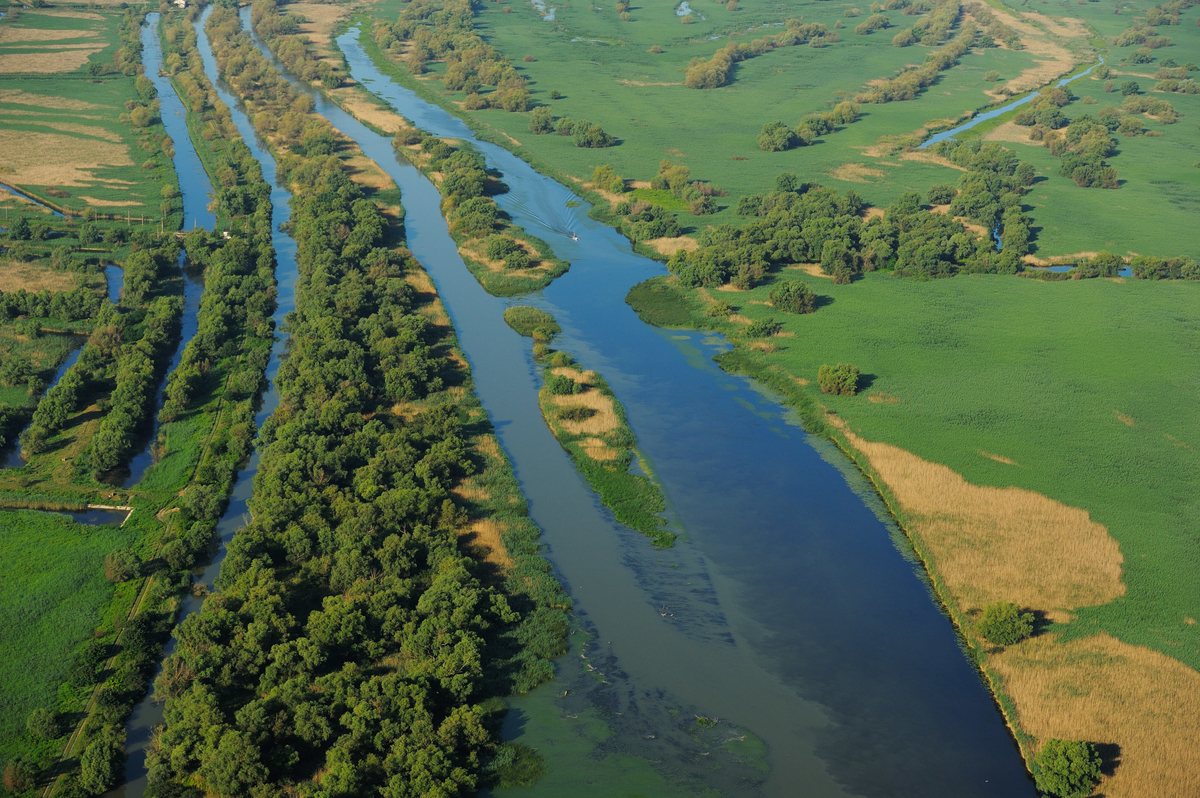
Rewilding Europe is delighted to announce that a grant of 2.1 million euros (2.4 million USD) from the newly established Endangered Landscapes Programme (ELP) will enable rewilding activities to be significantly scaled up in wetland and steppe areas of the Danube Delta. The grant will be used to fund the delta’s largest transboundary restoration project to date, accelerating the recovery of natural landscapes, their ecological processes and associated flora and fauna across at least 40,000 hectares (400 square kilometres) of the Danube Delta Biosphere Reserve in Romania, Moldova and Ukraine. Strengthening cross-border cooperation, it will also bring benefits to local communities through the development of thriving nature-based economies.
“We are thrilled and deeply grateful to be receiving this new funding from the ELP,” says Rewilding Ukraine team leader Mykhailo Nesterenko. “This project, which represents a huge step forward for rewilding in the Danube Delta, will provide the region with a role model for restoration at an even larger scale.”
The 2.1 million euro Danube Delta grant complements another for 2.6 million euros (3 million USD) awarded to Rewilding Europe for a scaled up rewilding project in Western Iberia.
“Rewilding Europe is extremely grateful for this substantial investment,” says Frans Schepers, Managing Director of Rewilding Europe. “It is tremendously encouraging to see restoration and rewilding in Europe supported today at such a scale by a private foundation. I hope this also encourages others, including the public sector, to join the movement to restore and rewild European landscapes.”
Overall the ELP disbursed grants totalling 26.1 million euros (30 million USD) for eight five-year projects, which will each work to restore natural processes in a diverse range of landscapes across Europe (see the full list at the end).
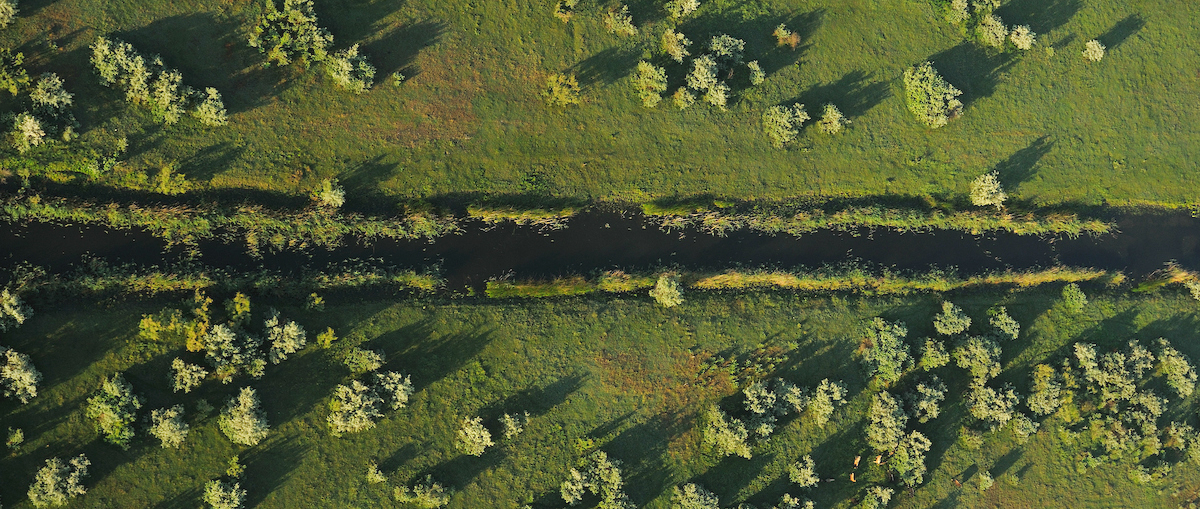
The ELP-funded project, entitled “Restoring the Danube Delta, Europe’s largest wetland”, will run from 2019 through to 2024. It represents a groundbreaking attempt to integrate the delta’s aquatic and terrestrial components at a landscape scale – from steppes and small tributaries to wetlands, lakes, streams and extensive, ancient coastal sand dune systems. Priority will be given to the reflooding of former polders and the reconnection of wetlands and lakes to the Danube river, with 10,000 hectares of wetland restoration per year starting in the second year of the project. Local partners are Rewilding Ukraine, Danube Delta Biosphere Reserve Authority (Romania), Danube Biosphere Reserve (Ukraine) and Verde e Moldova.
“This project will see the reflooding of former polders, reconnection of lakes with the Danube and restoration of islands, all combined with natural grazing in drier and wetter parts of the delta in an interconnected way,” explains Deli Saavedra, a regional manager with Rewilding Europe and the overall project lead. “It will restore hydrological dynamics and work towards the substantial recovery of unique steppe habitats.”
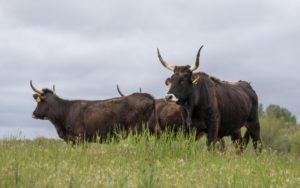
Boosting natural grazing, which in turns leads to the creation of more biodiverse mosaic landscapes, is an integral part of this project. Set to begin this year, the process of reintroducing large herbivores will involve local landowners in areas that have already been restored (such as Ermakov Island and the Orlovka and Kartal Lake wetland areas on the Ukrainian side of the delta), and with species/breeds for which there is already a demand from landowners and managing authorities, such as Konik horses, Tauros and water buffalo (all of these animals will be sourced from Rewilding Europe’s European Wildlife Bank). In steppe areas the proposed reintroduction of kulan (a wild ass) and Demoiselle crane will take place further along the project timeline.
This project is as much about people as it is landscapes and wildlife. It will involve local communities right across the project area, with a particular focus on the sustainable use of resources (such as fisheries) and nature-based tourism.
By offering training, developing best practice, providing business development support, and where possible financial support through Rewilding Europe Capital (Rewilding Europe’s conservation finance loan facility), the project will help nature-based businesses create new incentives for restoration, encourage acceptance of wildlife comeback, and instil a new sense of pride in the area. Rewilding Europe’s experience in the delta villages of Sfantu Gheorghe (Romania) and Orlovka (Ukraine) has already shown encouraging results regarding this approach.
Progressive programme
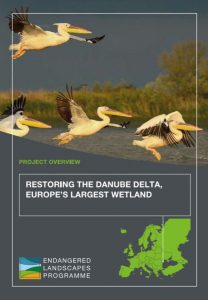
The ELP has been established thanks to a 30 million USD investment from Arcadia, the UK-based charitable fund of philanthropists Lisbet Rausing and Peter Baldwin. Supporting charities and scholarly institutions that preserve cultural heritage and the environment, it has awarded more than 500 million USD to projects around the world since 2002.
The ELP is managed by the Cambridge Conservation Initiative, a unique collaboration between the University of Cambridge and leading internationally-focused biodiversity conservation organisations clustered in and around the city of Cambridge. In line with Rewilding Europe’s own objectives, it envisions a future in which Europe’s landscapes are enriched with biodiversity, establishing resilient, more self-sustaining ecosystems that benefit both nature and people.
The ELP is not about recreating the past and taking things back to a time before human influence, but aims to restore processes, populations and habitats for a better and more sustainable future. It signals a shift away from “slowing declines” and “no net loss” to a more positive and creative agenda in which the potential of our land and seas is recognised.
“Europe’s landscapes need to be repaired if they are to fulfil their potential as places that can offer space for nature to thrive and give people inspiration and enjoyment,” says ELP Programme Manager David Thomas. “These are landscapes where vital ecosystem processes can provide us with a sustainable supply of clean air, fresh water, food and fuel, where natural habitats can protect us from floods, storms and sea-level rise, and where wildlife can move freely as it adapts to climate change.”
Unique landscapes
One of Europe’s largest remaining natural wetlands, the 4000 square-kilometre Danube Delta is divided between Romania (80%) and Ukraine (20%). One of the richest temperate zone ecosystems, it boasts an amazing diversity of habitats, from waterways, reedbeds, steppes and dunes to lagoons, beaches, saltmarshes and forests.
The fauna and flora present in the delta are also incredibly diverse, with 300 species of birds and over 100 species of fish. Most of the world’s pygmy cormorants and the European populations of two pelican species live here.

While humans have resided in the delta for thousands of years, the twentieth century saw anthropogenic activity really impact the area. Dams, polders and roads were built to reclaim land for agriculture and irrigation, while two of the three arms of the Danube were straightened. The has left a legacy of obsolete infrastructure, degraded land and waterways, and impoverished communities.
Rewilding Europe has been carrying out rewilding activities in the Danube Delta since 2012, using natural dynamics as drivers of change and building nature-based economies. This new project is a fantastic opportunity to build on the momentum and really amplify our efforts.
- Read more about Rewilding Europe’s work in the Danube Delta here.
- Visit the Rewilding Danube Delta Facebook page here.
- Visit the Endangered Landscapes Programme website here.
The eight projects funded by the ELP are as follows:
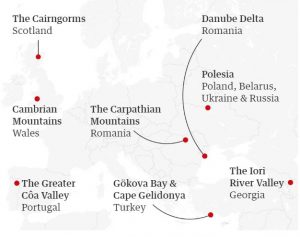
- Rewilding Europe for Danube Delta wetland and steppe restoration.
- Rewilding Europe for the development of a 120,000-hectare wildlife corridor in Western Iberia.
- The Royal Society for the Protection of Birds (RSPB) for a project in the Scottish Highlands as part of the Cairngorms Connect
- Rewilding Britain and the Woodland Trust for the Summit to Sea/O’r Mynydd i’r Môr (S2S) project in mid-Wales.
- Fauna & Flora international for a project to restore more than 500 kilometres of vulnerable Turkish Mediterranean coast.
- The Frankfurt Zoological Society for a project to restore drained wetlands and support the designation of new conservation areas in Belarus and Ukraine.
- Fundatia Conservation Carpathia (FCC) for a project to establish one of Europe’s largest wilderness areas in Romania.
- BirdLife International for a project to restore ecological processes, habitats and species assemblages in Georgia.
